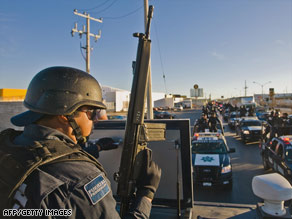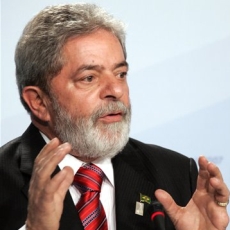My favorite song by the band just so happens to be the first one I heard from them: “Cuchi-Cuchi.” Yet the video I enjoy the most is for "Si Estuvieras Aqui". From the Day-glo polyester suits to the vintage shots of fawning girls in the audience, the boys appear in an ode to classic Latin American variety shows like Sábado Sensacional and Siempre en Domingo.
Have we mentioned that Los Amigos Invisibles will be in concert tonight?
- Monday - “Playa Azul”
- Tuesday - “Yo no sé”
- Wednesday - “Las Gorditas de Mario”
- Thursday - “Las Lyrcias del Avila” (Live on KCRW)

























